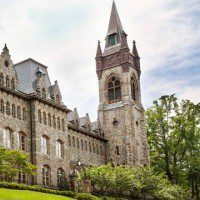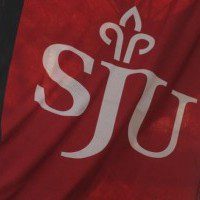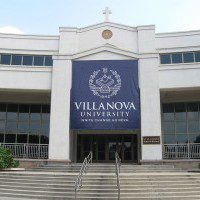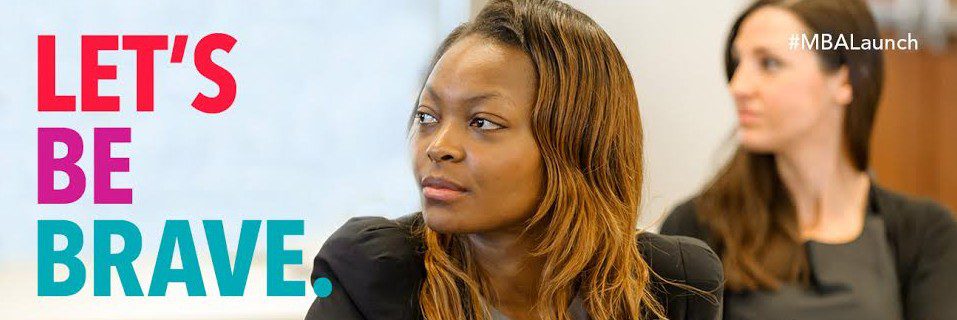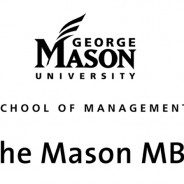If you are thinking about taking the GMAT or want to learn more about Veritas Prep’s GMAT courses, register to attend a one-hour seminar hosted by Veritas Prep’s course co-creator. This seminar will show you what to expect from the GMAT and how to conquer the exam.
Search results for :
San Fran State University Student Creates Winning App Concept
Consumers could conserve more water with help from San Francisco State University student Wayman Duong’s award-winning app concept. The app named My Water Use Management, would allow users to set personal water use goals, get notifications and track household use. The app was one of only five projects awarded the top prize at the Utility of Tomorrow Innovation Contest.
For the win, the teammates will have the opportunity to continue developing their app at a weeklong SAP-sponsored workshop in Palo Alto this summer. Duong is a senior in information systems, collaborated with two students from the City University of Beijing, Bik Ying Chin and Chui Kwan Lam.
“Water companies have the data already,” said Duong. “If they deployed an app like this, let customers track their own water use, that would be ideal.” Continue reading…
REGISTER: Overlooked Sources of Capital in the Startup Ecosystem at Wharton San Fran
In the latest discussion curated by the Wharton Entrepreneurs Workshop, Wharton San Francisco will host two authoritative figures in the financing industry, Jim Mitchell and Andy Hirsch, for an event that will looks at the state of financing in the modern start up ecosystem on April 17.
The workshop is titled “Venture Debt and Non-Venture Debt: Overlooked Sources of Capital in the Startup Ecosystem.” It will focus on venture lending and bank lending, which are essential elements in the array of financing alternatives available to early stage companies. Continue reading…
Alum Profile: Kellogg’s Paige Ponder, MBA ‘02
The following article was originally sourced from the piece “Community Investment” on Kellogg’s News & Events page.
Paige Ponder is a Kellogg School of Management alum and CEO of One Million Degrees, a Chicago nonprofit that provides financial, academic, personal and professional support to highly motivated low-income community college students. Starting with just a handful of students in 2006 and is now serving 130 students this school year, Ponder’s nonprofit has plans to continually grow over the next five years. Continue reading…
Kellogg Professor Shares Insight for Middle-Market Execs
The following article was originally sourced from the piece “Built to Scale” on Kellogg’s News & Events page.
In the second installment of the Kellogg-Chase “Growth in Middle-Market Companies” series, Kellogg School of Management Professor Mohan Sawhney highlights five strategic areas where middle-market executives must shift their mindset to achieve scale.
To take their company to the next level, middle-market companies need to navigate five transitions to ensure that the company is “built to scale.” Continue reading…
Stanford’s David Pitt-Watson on Entrepreneurship as a Basic Freedom
David Pitt-Watson, Stanford Graduate School of Business MBA ’80, has worn many hats in the business world. He has been social entrepreneur, politician and financier. As the co-founder and CEO of Hermes Focus Asset Management, known as the Focus funds, Pitt-Watson advocated that investment funds should act as if they are the owners of companies rather than the traders of shares of stock. This led him to become best known as a shareholder activist and promoter of responsible investment practices.
Pitt-Watson sat down with his alma mater and discussed the value of tolerance, the difficulties of resilience and the downside of aid. Here are a few highlights from that interview. Continue reading…
Evening MBA
Santa Clara University Evening MBA Program Structure
The Santa Clara University Evening MBA at Leavey School of Business classes typically meet just two days a week—on Mondays and Wednesdays or Tuesdays and Thursdays—lasting two years.
Integrated courses cover the business fundamentals in a cohort format. The lock-step interdisciplinary nature of the program allows for an optimal learning environment that facilitates effective discussions and group projects. There are two intakes of students each year, with classes beginning in the fall or spring.
Santa Clara University Evening MBA Curriculum
The Santa Clara University Evening MBA program requires completion of 70 semester units of coursework comprising 14 foundation courses, one required elective and 26 units of electives.
Students pursuing a specific concentration should dedicate at least twelve units, and the remaining eight elective units are un-allocated and may be taken in any discipline. Core courses include: Effective Business Communications; Financial Accounting; Analysis, Design, and Management of Enterprise Platforms; Managerial Economics; Business Analytics; Business Ethics; Doing Business in Silicon Valley; Financial Management; Analytical Decision Making; Leading People and Organizations; Marketing is Everything; Operations Management; Quantitative Methods; and Strategy.
Students can choose elective from six different concentrations: Data Science and Business Analytics, Entrepreneurship and New Venture Creation, Finance, Leading Innovative Organizations, Food Entrepreneurship, and Marketing.
International study is an optional opportunity to integrate with the curriculum. Faculty and students visit corporate headquarters and government agencies of the selected region to understand the global nature of business first-hand. Previous classes have visited Korea, Switzerland, and Chile.
Part-Time MBA Rankings
U.S. News & World Report: #20 Part-Time MBA
Fortune Magazine: #16 Part-Time MBA
Class Profile
The most recent class of Santa Clara University Evening MBA students entered the program with around eight years of professional work experience, a 3.4 GPA, average GMAT of 626 and were around 31-years old. Forty-two percent of the most recent class was female.
Tuition, Scholarships, and Financial Aid
Tuition for the Santa Clara University Evening MBA cost $1,198 per unit, with students completing a minimum of 70 units for the program.
Most student loans are based on either financial need or creditworthiness and are available only to US citizens and permanent residents. Students commonly use the Federal Stafford Loan Program and Alternative Education Loans. Private loans may also be available.
Applicants are automatically considered for merit-based scholarships during the admissions process. Scholarship recipients are awarded at the time of admission. Scholarships are awarded each term (except summer), through graduation, conditioned upon cumulative 3.0 GPA throughout the program. Scholarships are awarded each term (except summer), through graduation, conditioned upon cumulative 3.0 GPA throughout the Santa Clara University Evening MBA program.
Santa Clara University Evening MBA Admissions
Applicants to the MBA programs must have completed a Baccalaureate degree or recognized qualifications equivalent to a degree.
To apply to the Santa Clara University Evening MBA program, applicants must submit a completed application form, official copies of transcripts from each institution attended, current résumé, and two letters of recommendation. Official GMAT score OR GRE scores must also be sent in by applicants, along with a $148 application fee. However, a GMAT/GRE waiver is also available. International students from non-native English-speaking countries must provide a recent TOEFL score in order to prove English fluency.
Once the application is submitted, students will be contacted to schedule a mandatory evaluative interview.
Deadlines:
Fall 2022 Enrollment:
Round |
Application Deadline |
Interviews* |
Notification |
Enrollment Fee Due |
|---|---|---|---|---|
1 |
||||
2 |
||||
3 |
||||
4 |
STATS
| Cost : $1,198 / Unit for 70 units
Length of Program : 2 Years |
| Female Student Body : 42% |
| Average GMAT Score : 626 |
| Work Experience Average : 8
Graduate Program Offerings : Leavey offers a wide range of programs including MS options in Business Analytics, Finance Analytics, Information Systems, and Marketing. Students may also achieve their MBA in part-time, full-time online or executive formats. |
Harvard Professor Suggests Super Bowl Ads for Multitaskers
In the age of portable technology, TV viewers often surf the web on a cell phone or laptop while simultaneously watching TV. In 2012, a Nielsen survey revealed that roughly 40 percent of tablet and smartphone users use their devices while watching tv on a daily basis.
Two years ago, 60 percent of football fans reported that they planned to use a smartphone, tablet, or laptop while watching the Super Bowl. 13 percent of respondents said that they would do so during the game, while the rest planned to use other forms of technology during commercial breaks. This survey is particularly worrying for advertisers, who paid an average of $4 million dollars per 30 second Super Bowl ad during the 2013 game.
“Advertisers are paying based on the audience watching a program,” says Thales S. Teixeira, a professor of marketing at Harvard Business School. “If people stop paying attention en masse, they are not getting everyone they are paying for.”
However, Teixeira says that advertisers should see the multitasking trend as an opportunity as well as a challenge. If viewers have their laptop or cellphone nearby, a tv ad could lead them to make a quick online purchase while watching the game. Teixeira and co-authors Jura Liaukonyte of Cornell University and Kenneth C. Wilbur of the University of California, San Diego have written a working paper called “How TV Ads Trigger Online Shopping” about how advertisers can use viewer multitasking to their advantage. The paper considers when viewers are likely to purchase something they saw on television, but also what types of ads encourage them to purchase products and services online.
The researchers used two databases to study viewer behavior. One database from Kantar collects data from television monitoring boxes to analyze what volunteers watch while at home, including commercials. Another from comScore analyzes what users do online, including how long they stay on certain websites and what they purchase from e-commerce sites. The databases allowed researchers to analyze how particular ads affected the number of visits to the advertisers’ websites, and the number of purchases that people made on the websites.
The researchers divided the ads into four main types. Action-focused ads, which encourage viewers to take action by offering sales, special deals, and incentives to shop, increased visits to advertiser’s websites, but did not increase the number of purchases per visitor. Product- and emotion- focused ads, which give people reasons to buy a particular product or encourage people to form attachments to a brand, increased the number of purchases made by people who were already visiting the advertiser’s site.
Intriguingly, the study found that imagery-focused ads, the sweeping works of advertising that are mainstays of the Super Bowl, actually reduce sales. Big showstopper commercials lead to fewer website visitors and fewer sales for the advertiser, potentially because people are so enthralled by the ad that they don’t switch to using other forms of technology.
The Super Bowl has always been a competition between advertisers as well as a competition between football teams. Texeira’s paper can show retailers how to remain competitive by adapting to new technology and viewer habits.
Harvard Professor Suggests Super Bowl Ads for Multitaskers
In the age of portable technology, TV viewers often surf the web on a cell phone or laptop while simultaneously watching TV. In 2012, a Nielsen survey revealed that roughly 40 percent of tablet and smartphone users use their devices while watching TV on a daily basis.
Two years ago, 60 percent of football fans reported that they planned to use a smartphone, tablet, or laptop while watching the Super Bowl. 13 percent of respondents said that they would do so during the game, while the rest planned to use other forms of technology during commercial breaks. This survey is particularly worrying for advertisers, who paid an average of $4 million dollars per 30 second Super Bowl ad during the 2013 game.
“Advertisers are paying based on the audience watching a program,” says Thales S. Teixeira, a professor of marketing at Harvard Business School. “If people stop paying attention en masse, they are not getting everyone they are paying for.”
However, Teixeira says that advertisers should see the multitasking trend as an opportunity as well as a challenge. If viewers have their laptop or cellphone nearby, a TV ad could lead them to make a quick online purchase while watching the game. Teixeira and co-authors Jura Liaukonyte of Cornell University and Kenneth C. Wilbur of the University of California, San Diego have written a working paper called “How TV Ads Trigger Online Shopping” about how advertisers can use viewer multitasking to their advantage. The paper considers when viewers are likely to purchase something they saw on television, but also what types of ads encourage them to purchase products and services online.
The researchers used two databases to study viewer behavior. One database from Kantar collects data from television monitoring boxes to analyze what volunteers watch while at home, including commercials. Another from comScore analyzes what users do online, including how long they stay on certain websites and what they purchase from e-commerce sites. The databases allowed researchers to analyze how particular ads affected the number of visits to the advertisers’ websites, and the number of purchases that people made on the websites.
The researchers divided the ads into four main types. Action-focused ads, which encourage viewers to take action by offering sales, special deals, and incentives to shop, increased visits to advertiser’s websites, but did not increase the number of purchases per visitor. Product- and emotion- focused ads, which give people reasons to buy a particular product or encourage people to form attachments to a brand, increased the number of purchases made by people who were already visiting the advertiser’s site.
Intriguingly, the study found that imagery-focused ads, the sweeping works of advertising that are mainstays of the Super Bowl, actually reduce sales. Big showstoppers lead to fewer website visitors and fewer sales, potentially because people are so enthralled by the ad that they don’t switch to using other forms of technology.
The Super Bowl has always been a competition between advertisers as well as a competition between football teams. Teixeira’s paper can show retailers how to remain competitive by adapting to new technology and viewer habits.
Baruch Professor Named Top Thought Leader in Trustworthy Business
S. Prakash Sethi, a professor at Baruch College’s Zicklin School of Business, has been honored by Trust Across America-Trust Around the World, as one of the Top 100 Thought Leaders in Trustworthy Business. Trust Across America aims to enhance trustworthy behavior in organizations. Trust Across America-Trust Around the World created the Top 100 Thought Leaders in Trustworthy Business list to recognize professionals who help create trustworthy organizations, from leadership experts and CEOs to researchers and teachers. The organization spoke to hundreds of experts from a variety of professional disciplines to determine who the nominees for the Top 100 list should be. Finally, a panel of judges selected the Top 100 Thought Leaders.
Sethi is a University Distinguished Professor of Management at Zicklin. Sethi is an international business expert who studies sustainable business practices, globalization, corporate social responsibility, corporate strategy, and business ethics. He is also the creator of CSR-S Monitor, a pioneering Index. CSR-S Monitor tracks sustainability and corporate social responsibility reports from large corporations around the world. He has written more than 130 articles in scholarly and professional journals, and he has authored, co-authored, or edited 25 books.
Trust Across America was founded by Barbara Kimmel, an MBA alumna of Baruch. Kimmel is also a communications executive who worked as a consultant to McKinsey before running her own firm, Next Decade, Inc. In 2012, Good Business International named Kimmel one of 25 Women Who are Changing the World.

Philadelphia MBA Programs That Don’t Require the GMAT or GRE

Below is a list of business schools in the Philadelphia Metro that don’t require the GMAT or GRE. More information on the GMAT and GRE can be found in our MetroMBA No GMAT and GRE Guide and a complete list of MBA programs in the Philadelphia region on our Philadelphia Metro MBA page.
Please note that many of these programs are executive MBA programs, which typically cater to applicants with many years of professional experience. Click on a program profile below to see if you meet the eligibility requirements for that program.
Comparing Mason’s MBA Programs
Making the decision to advance your education at The George Mason University School of Management and bring your skills to the next level is a serious commitment and one that needs great consideration. Many business professionals struggle to decide what university to attend in order to pursue their studies and how to compare MBA programs.
It is important to compare MBA programs and their unique traits in order to gain a good perspective and find the program and institution that is the best fit for you. Most prospective students will compare MBA programs cost and location, and also whether or not they intend to go as a part-time or a full-time student.
Drexel Professor Publishes Paper on Recruiting Millennials
Have you been wondering how to attract tech-savvy Millennials to be employees for a new venture? Dr. Jonathan Ziegert, an Associate Professor at Drexel University’s Lebow College of Business, has recently published a paper with advice for recruiting Millennials. His work, “Web-Based Recruitment in the Millennial Generation, Work-Life Balance, Website Usability, and Organizational Attraction” was recently published in the European Journal of Work and Organizational Psychology.
Ziegert claims that company websites are a crucial recruiting tool. Millennials often use company websites to assess potential employers, and they often judge companies based on what they see on a company’s website. A good website should have both substance and style. Ziegert explains ““This generation grew up with the Internet. They assume that if the look and feel of your website isn’t user-friendly, or it’s difficult to navigate, your company isn’t technologically savvy.”
Ziegert observes that while Millennials look at salary and other traditional job features while searching for work, they also value work-life balance, meaningful work, and jobs that offer skills that they can transfer to a variety of positions. In fact, many Millennials say that work-life balance is just as important to them as salary when they are considering a company. A company recruiting website should highlight the values and opportunities they offer to appeal to Millennials: “[Millenials are] also determined to find a great fit, so it’s very important to clearly highlight your values and goals, and make sure your website is a good representation of your company.”
D’Amore-McKim Career Center Director Provides Advice for Job Seekers
Lynne Sarikas, the Director of the MBA Career Center at Northeastern University’s D’Amore-McKim School of Business, has published an article in Business Insider and Career Attraction. The article is called “13 Resolutions Every Job Seeker Should Make”, and it provides advice for people at different stages of a job search.
In the article, Sarikas identifies networking as “the single most important thing you can do in your job search.” Sarikas points to a study by the Bureau of Labor Statistics that found that approximately 80% of positions are filled through networking. She advises that job seekers talk to family and friends to find potential contacts. Job seekers can also reach out to individuals at their target companies for informational interviews to develop contacts. Sarikas suggests that job seekers aim to make at least five networking connections per week.
Throughout the article, Sarikas emphasizes preparation. At the beginning of a job search, people should define their career goals and develop a path to achieve them. Then, they should update their resume and practice writing customized cover letters. Sarikas also suggests that job seekers develop a target list of companies, and keep a watchful eye on the content of their social media accounts.
Lynne Sarikas was the Vice President of Development at the United Way of Massachusetts Bay before she began working for Northeastern University. While working for United Way, Sarikas managed a fund-raising team that built and developed United Way’s corporate relationships. Sarikas has also held management positions that provided her with substantial experience in customer service, sales, account management, and operations management.
You’ve Got Options with Howard MBA Programs
At the Howard University School of Business, there are two programs to choose from when you are ready to earn your MBA: a traditional MBA designed for students with educational background in business who are getting ready to enter the professional field, and the Executive MBA, designed for students who are already working full-time and are looking to take their corporate careers to new heights.
Wharton Professor Featured In Forbes
In an article called “The Most Dynamic Social Innovation Initiatives of 2013”, Susan McPherson honors Wharton Professor Adam Grant as one of the inspiring social innovators of 2013. McPherson claims that Grant had the “Game Changing Idea” of 2013. Professor Grant’s research suggests that people who give for authentic reasons tend to be more successful than people who are less generous. His research supports the idea that companies should attempt to hire generous people and promote employee engagement in the community.
Adam Grant is the highest-rated professor at the University of Pennsylvania’s Wharton School. He earned his Ph.D. in three years, and he is now the youngest-tenured professor at Wharton. Although he is only 31 years old, he is already one of the most well known academics in the field of organizational psychology, where he studies dynamics in the workplace. He advises companies who are trying to determine how to encourage employees to do their best work, and how to support employees so that they get the most out of their jobs.
Grant will outline his theory that people feel more fulfilled in their jobs when they have the opportunity to help others in his new book “Give and Take.” In the book, he tells a story from his undergraduate career, when he worked at a call center that helped fund student scholarships. When he brought in a student who received a scholarship to talk to call center employees about how the scholarship changed his life, the call center brought in 171 percent more revenue in the subsequent month.
In several studies of altruism as motivation, Grant has seen the same pattern over and over. When doctors were reminded that washing their hands protects patients from infection, they used 45 percent more soap than doctors who were reminded that they can protect themselves from infection when they wash their hands. His lessons also applied to the corporate world. Grant told the New York Times Magazine: “In corporate America, people do sometimes feel that the work they do isn’t meaningful. And contributing to co-workers can be a substitute for that.”

Smeal Revises Supply Chain Management Open Enrollment Programs
This week, Penn State University’s Smeal College of Business revealed plans to overhaul their open-enrollment supply chain management programs to make the programs more applicable to modern industry.
Smeal began their overhaul of the supply chain management open-enrollment programs with extensive research to determine how the school should proceed with its programs. Penn State Executive Programs researched market trends in supply chain management and obtained feedback from faculty, past program participants, and supply chain management industry leaders. Jeffrey L. Spearly, senior director of learning and development for Penn State Executive Programs, described the conclusion of their study: “our research verified that clients need tightly focused, immediately applicable programs with a learning experience that develops both leadership and technical competence.”
In response to the study, Smeal revised its curriculum, focusing on necessary skills in supply chain management while also trying to help participants understand the connections between their supply chain management work and the overall goals of their companies. Smeal also worked to remove content that is repeated in multiple courses, and managed to reduce the length of the supply chain management certification program and limit the fees associated with it.
In addition to changes in the curriculum, Smeal has developed two new executive programs in supply chain management: Supply Chain Analytics and Transportation Operations and Sourcing. These programs came from client requests for more educational content in analytics and transportation. These two programs are the newest in Smeal’s seven programs in supply chain management. The programs will debut in June at Penn State’s University Park campus.
Open enrollment students may earn a certificate in Supply Chain Management by completing a number of courses. Penn State Smeal’s open enrollment classes for 2014 will include courses in finance, information technology, and leadership and strategy as well as supply chain management.

12 Month MBA
Northern Illinois University 12 Month MBA Program Structure
The Northern Illinois University 12 Month MBA Program accepts one cohort each winter. Classes begin in January and students finish course work in 12 months. Classes are offered at the downtown Chicago location, in the heart of the Loop; or at NIU Hoffman Estates. Attending class just two evenings per week, students earn their MBA in 12 months.
Students attend class every Tuesday and Thursday evening. A typical schedule runs from 6:15 until 10 p.m. with a 15 minute break for refreshments at 8 p.m. Additionally, classes are broken into groups of students and expected to meet up at least once per week outside of normal classroom hours.
Program fee includes a nine-day international trip, which is usually scheduled in February. These experiences generally include a combination of company visits, government briefings, and university lectures. Past trips have gone to Lisbon, Portugal and Barcelona, Spain.
Curriculum
The Northern Illinois University 12 Month MBA program is designed for working professionals who already have gained management and business understanding through either an undergraduate business degree or completing equivalent coursework. Students are expected to enter the program having taken the following courses or prerequisites: Business Information Systems, Business Statistics, Financial Accounting, Fundamentals of Financial Management, Graduate Survey of Marketing, Business Law Essentials, Principles of Management, Principles of Operations Management, and Survey of Business Economics (both Macro and Micro). These knowledge areas are considered prerequisites to entering the program and can be tested out of by passing a course-specific exemption exam.
The core curriculum includes managerial accounting, financial analysis, managing behavior in organizations, management of information systems technology, strategic management policy, and marketing and management, among others. In addition to the core curriculum, students are expected to complete three elective courses. These can be selected based on students’ professional working needs and interests. Some elective options include: a negotiation course, conflict management, a global integration course with an international experience, and a capstone experience that incorporates a case competition.
An international trip is included in the curriculum.
Class Profile
Class size is capped at 40 students. International students make up between 3 percent-5 percent of the class. The program is about 60 percent male and 40 percent female. Average student age is 33 with a range of 27-54. The typical student has, on average, about nine and a half years of work experience. The program is billed as a “mid-career” MBA option.
Careers
Professional career counselors are available to help students and alumni with all facets of the job search. The Career Resource Center holds a walk-in resume review and also offers access to an array of job search information and databases. Finally, there are a number of on-campus career fairs hosted throughout the year.
Tuition, Scholarships, and Financial Aid
The total cost of the Northern Illinois University 12 Month MBA program for the class is $39,000 for courses offered at NIU Hoffman Estates. This price includes the cost of books, fees, academic materials, international trip, and refreshment breaks during class meeting days. The schedule for payment is as follows:
Non-refundable Deposit: $2,500 – due on acceptance
First Payment: due January 31
Second Payment: due by July 31
Third Payment: due September 30
Admissions
As noted above, there is significant prerequisite coursework for the 12 Month MBA program. Students who have completed undergraduate business degrees or equivalent coursework (and received a grade of C or better at the undergraduate level, or B or better at the graduate level) should submit their transcripts for evaluation prior to the full application submittal.
Applicants are required to complete the online application, submit a $60 credit card payment over NIU’s secure server, include two written recommendations from professional associates, and complete the Statement of Purpose form. Additionally, official transcripts from any undergraduate programs and official GMAT scores must be submitted. Finally, for students with sponsoring employers a supervisor, manager, HR representative, or other company official must sign and complete the Sponsor Agreement form.
Applicants must submit the graduate application form and supporting documents by December 10. Classes begin in January.
Full-Time MBA
Kellstadt Full-Time MBA Program Structure
The Depaul University full-time MBA at the Kellstadt Graduate School of Business takes about 18 months to complete and is designed for students with at least two years of professional experience. Classes are offered during the daytime from Monday through Thursday. There is one intake of students at the beginning of the fall quarter for this program. This single cohort of students make their way through the first three terms in a lock-step program, at which point students may then begin to take their concentration classes on a more personalized schedule.
Curriculum
The Kellstadt full-time MBA provides a rigorous structure, which most students are able to complete within four to five quarters of full-time enrollment. This curriculum begins with a mandatory orientation prior to the autumn quarter. Students complete a total of 16 courses; 11 core courses and 5 electives. Over the summer, students generally have a full-time internship.
Kellstadt’s MBA core curriculum is supplemented by a choice of 16 MBA concentrations based on personal business interest within the following departments: Accounting and Management Information Systems, Economics, Finance, Hospitality, Management, Marketing, and Real Estate.
Career Statistics
Ninety-two percent of Kellstadt students were employed within 6 months of graduation.
There are around 118,000 DePaul business alumni just in the Chicago area. The overall alumni population can provide in-roads at top corporate employers: Abbott, Deloitte, Ernst & Young, KPMG, McGladrey, PNC, PricewaterhouseCoopers, Grant Thornton LLP, Coyote Logistics, Crowe Horwath LLP, Northwestern Mutual: the Effner Financial Group, C.H. Robinson Worldwide, Inc., BDO Seidman, LLP, JPMorgan Chase, and Kraft Foods.
There are also an array of student organizations on campus that play an important networking role including the Circle of Finance Opportunities (CFO), Graduate Entrepreneurs’ Organization (GWB), and the Kellstadt Finance Community (KFC) to name a few.
Tuition, Scholarships, and Financial Aid
The Kellstadt course rate is $1,080 per credit hour.
All permanent U.S. residents and citizens can apply for federal student loans via fafsa.gov. DePaul offers a direct payment plans for students who are eligible for tuition benefits from their employers. Admitted students are also able to apply for graduate assistant positions if they don’t have full time work commitments. Limited scholarship funding is also available upon offer of admission.
Admissions
Kellstadt domestic student applicants must submit the following materials:
A $60 application fee, resume, official transcripts, GMAT or GRE scores (may be waived for certain applicants), a letter of recommendation, and an essay. The essay must explain their personal/professional interest in the program to which they are applying. Applicants may submit a second optional essay to provide details to the admission committee that the applicant would like for the admission committee to consider in the admission decision.
Applicants to the full-time MBA program are required to complete an interview. Other applicants may be required to schedule an interview if the Admission Committee deems it necessary.
International applicants with non-U.S. credentials are required to submit all transcripts, marks sheets, degree certificates, and graduation diplomas for review to one of three evaluation companies listed on the admissions website: Educational Credential Evaluators, Inc.; Educational Perspectives; or One Earth International Credential Evaluation.
Non-native English speakers who have not completed a bachelor’s or master’s degree in the United States are asked to submit scores from either the TOEFL, IELTS, or the Pearson Test of English (PTE).
Application deadlines are as follows:
The Full-Time Day MBA program starts in the fall, but students may submit their applications any time of year.
Full-time Day MBA applicants who wish to be considered for scholarships or graduate assistant positions should apply by April.



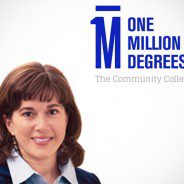
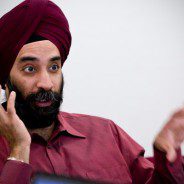


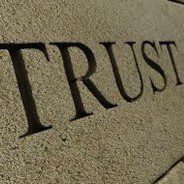
 Arcadia University does not require the GMAT or GRE for admissions into our MBA program.
Arcadia University does not require the GMAT or GRE for admissions into our MBA program. 


